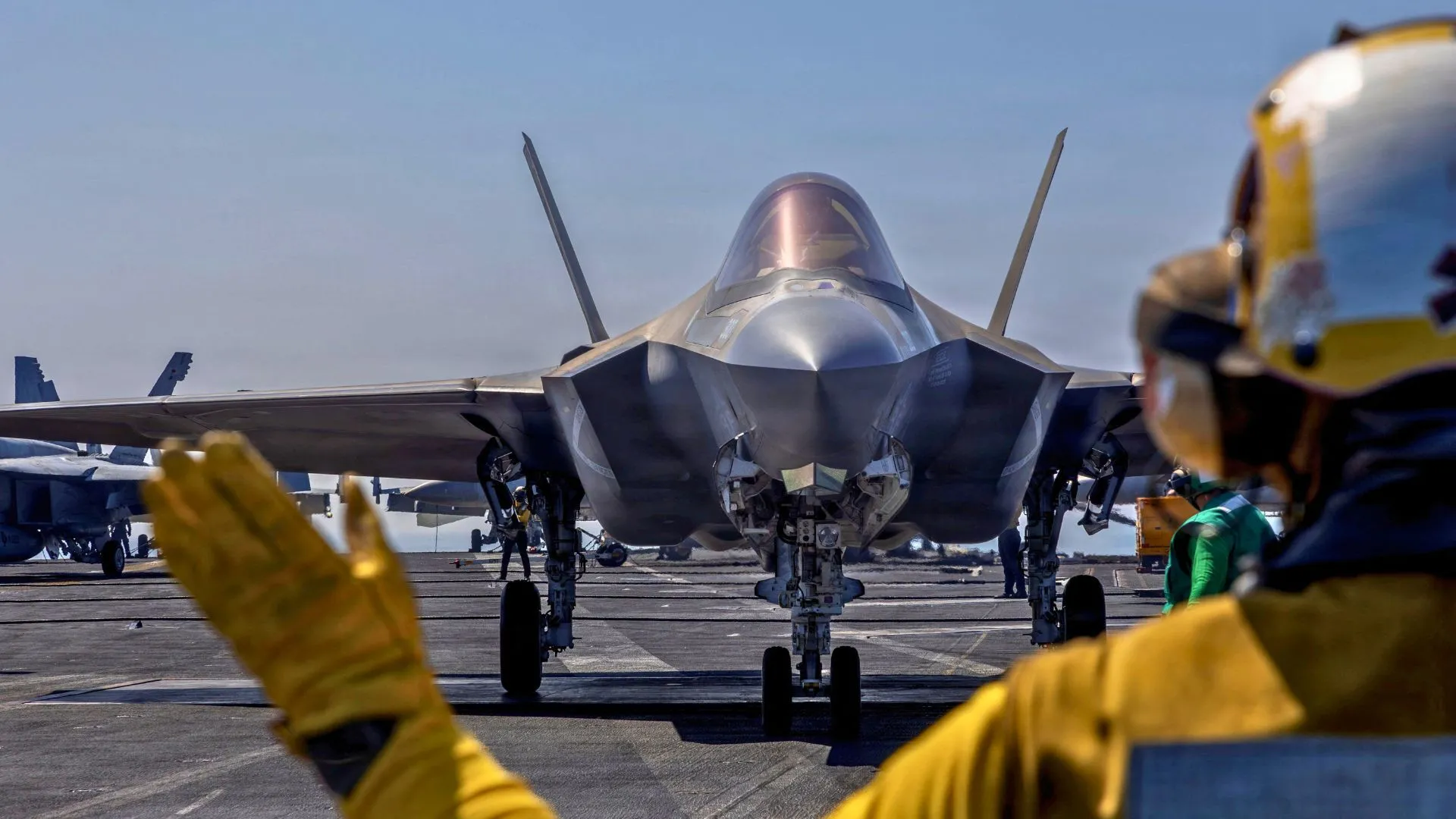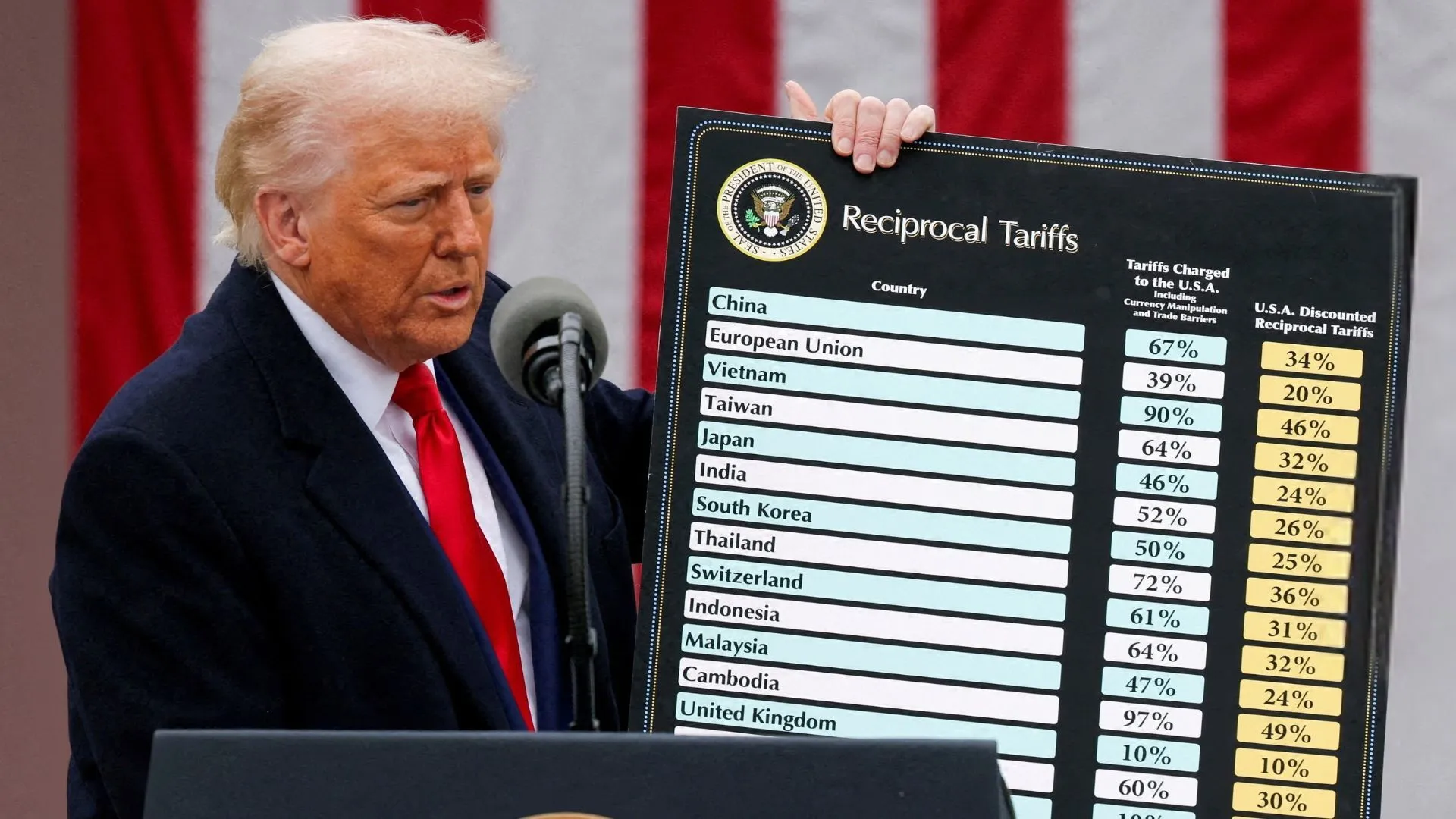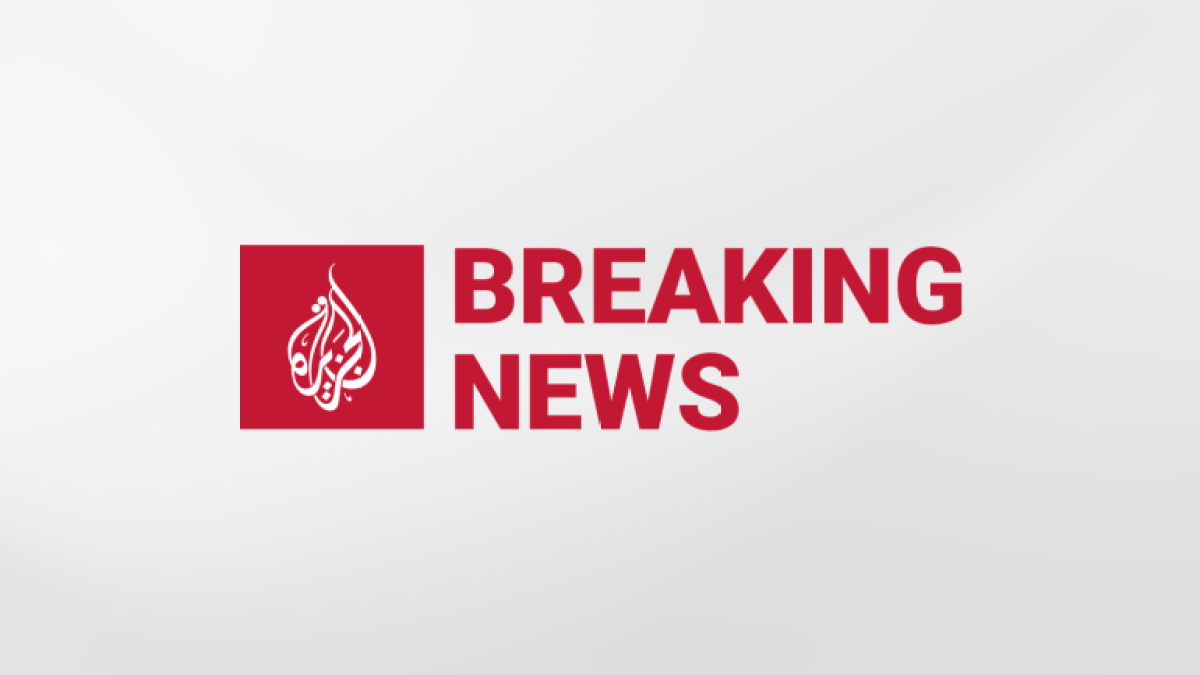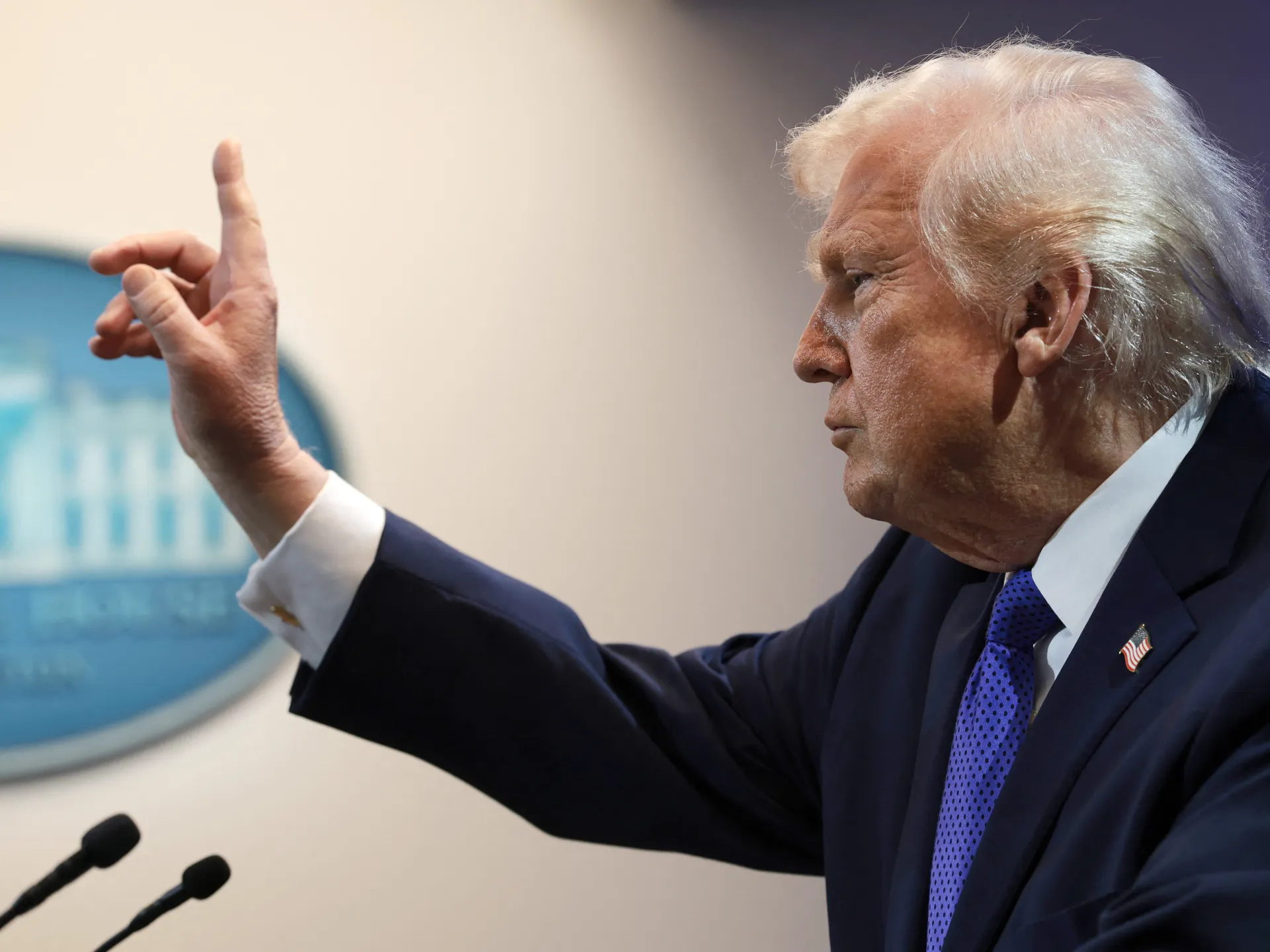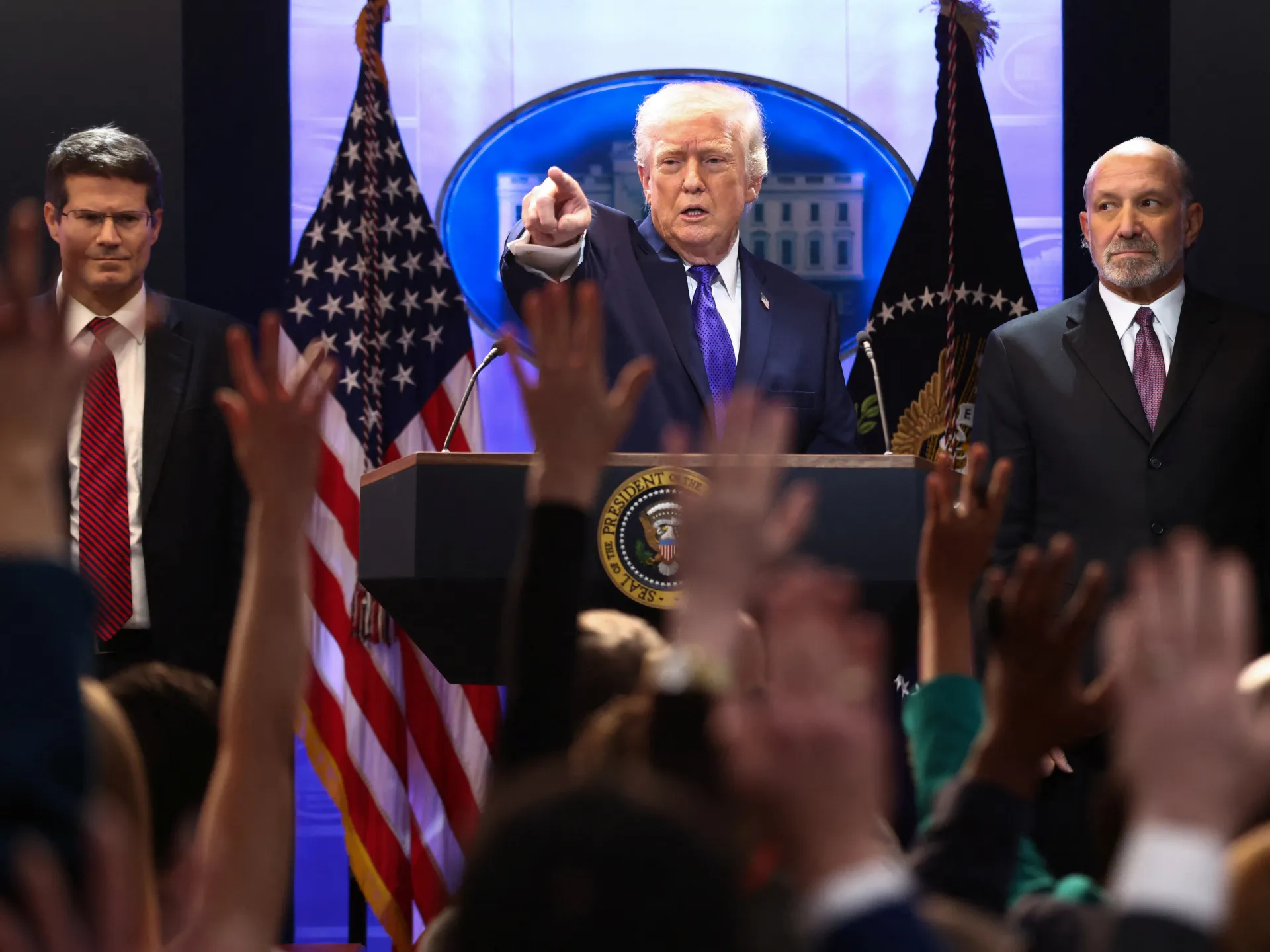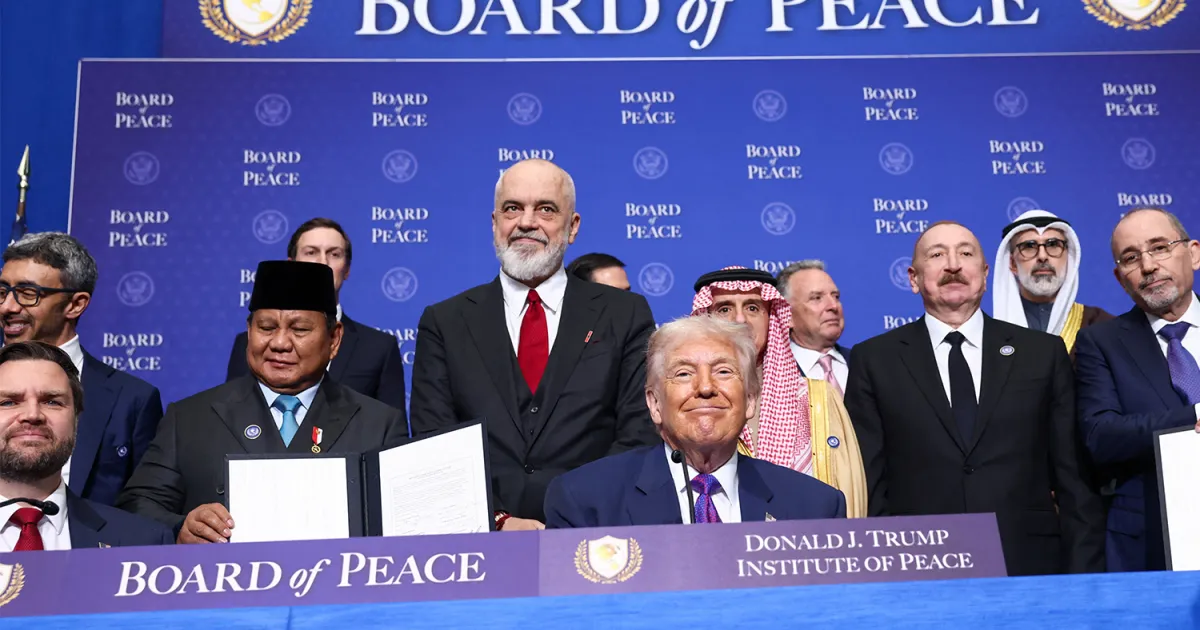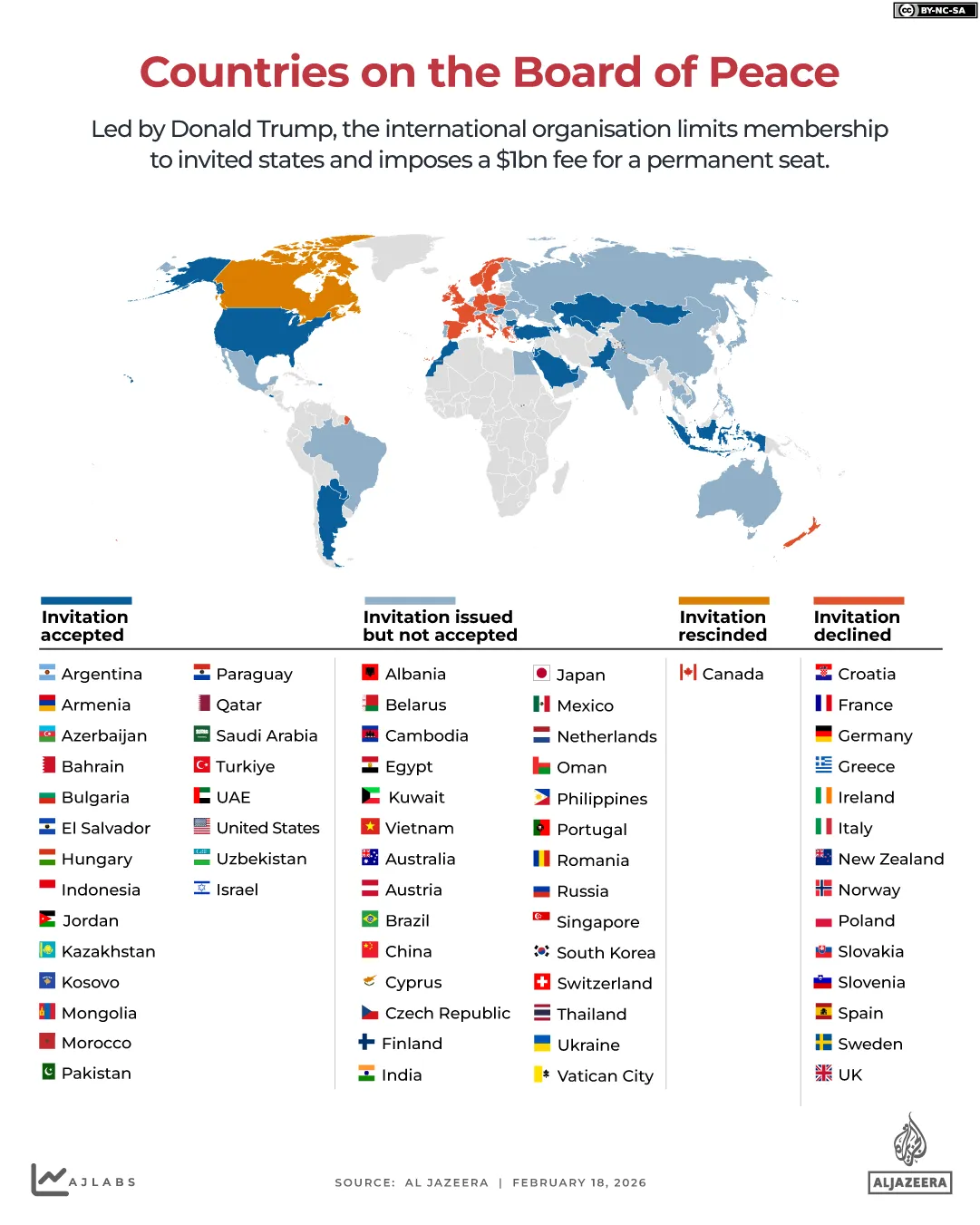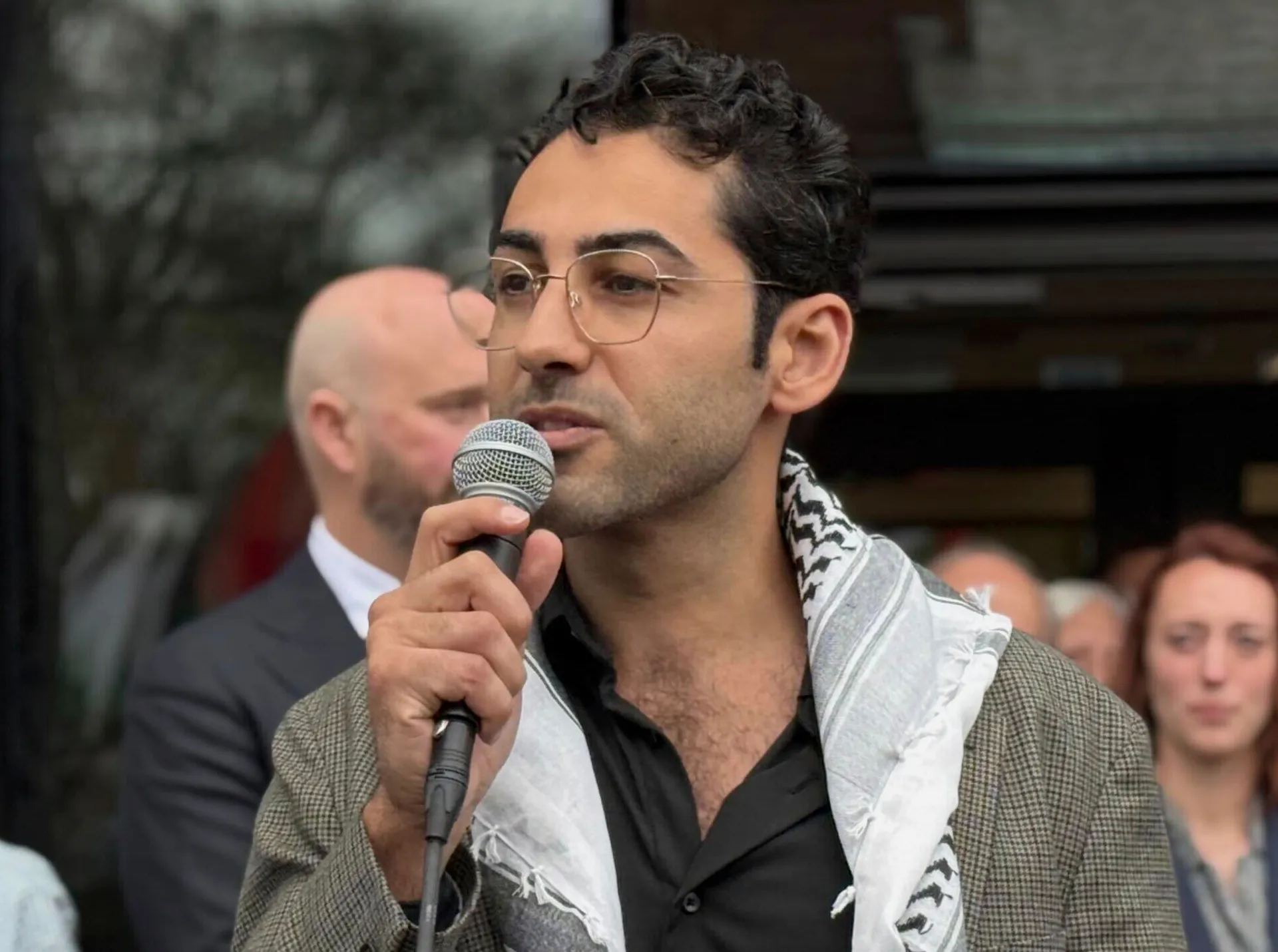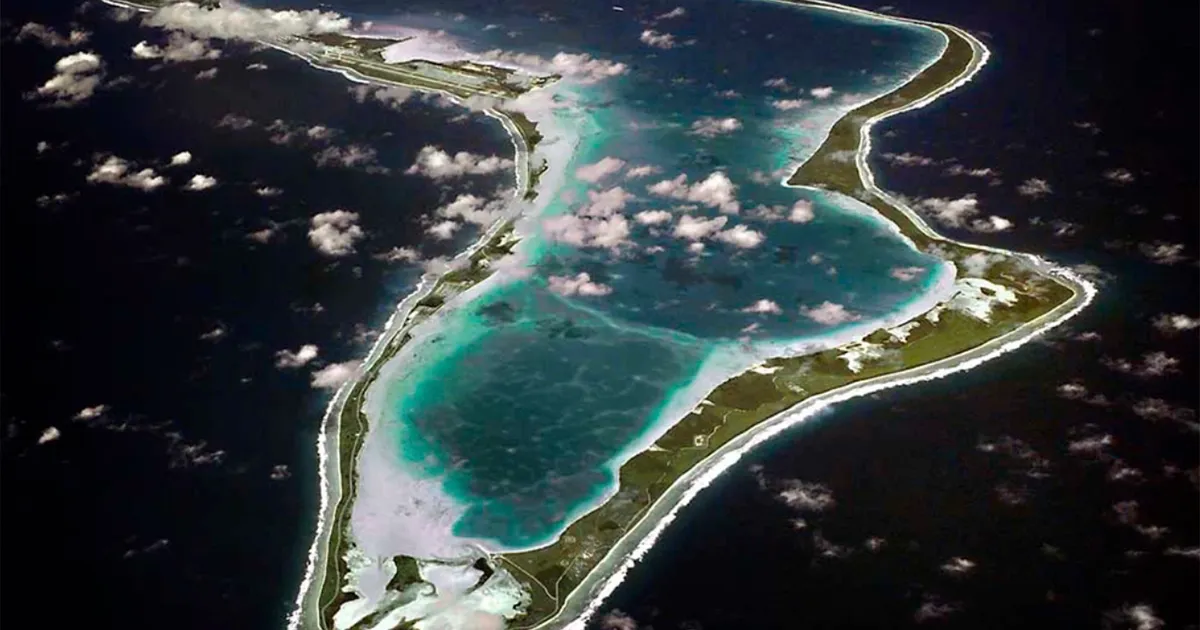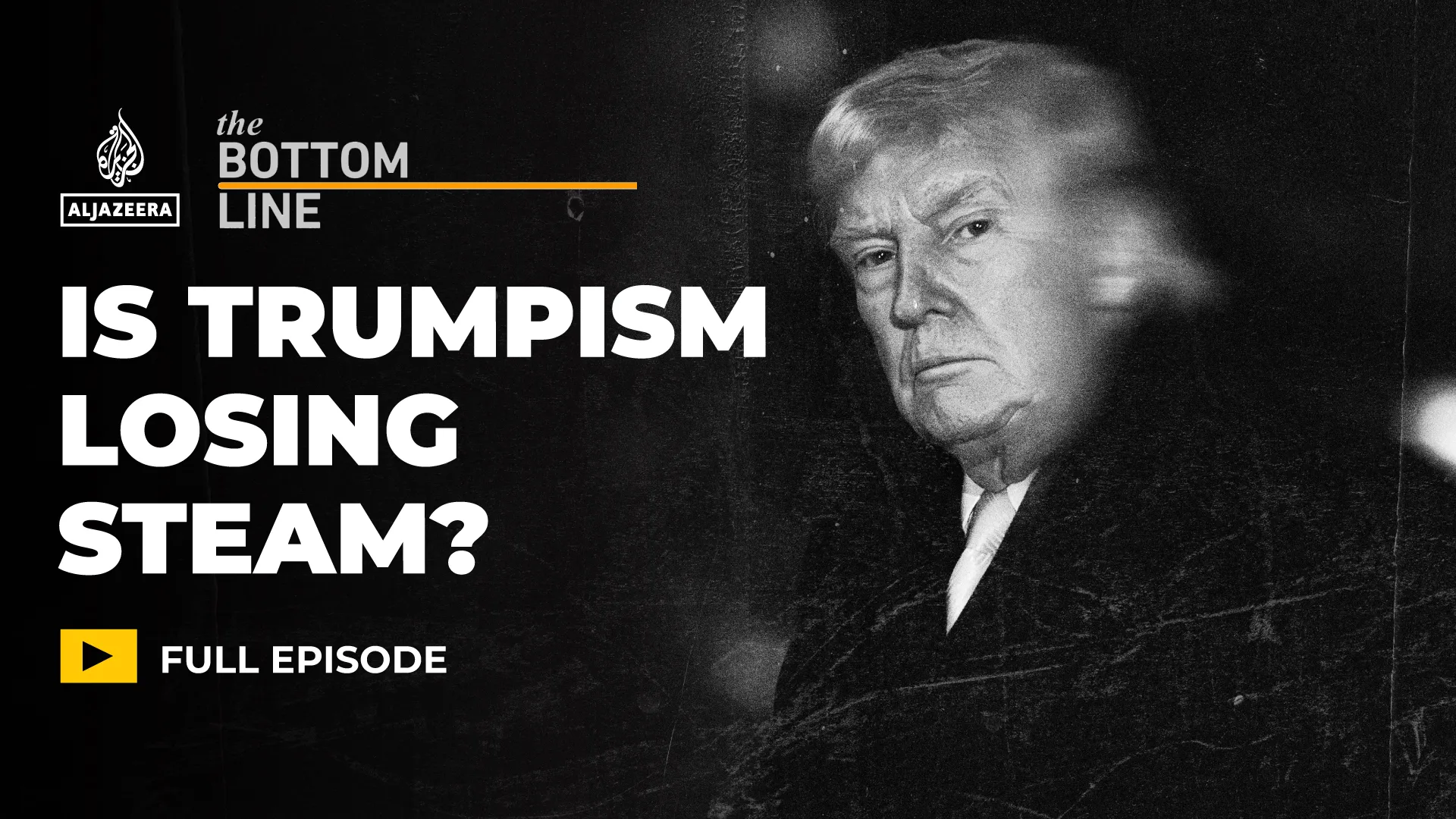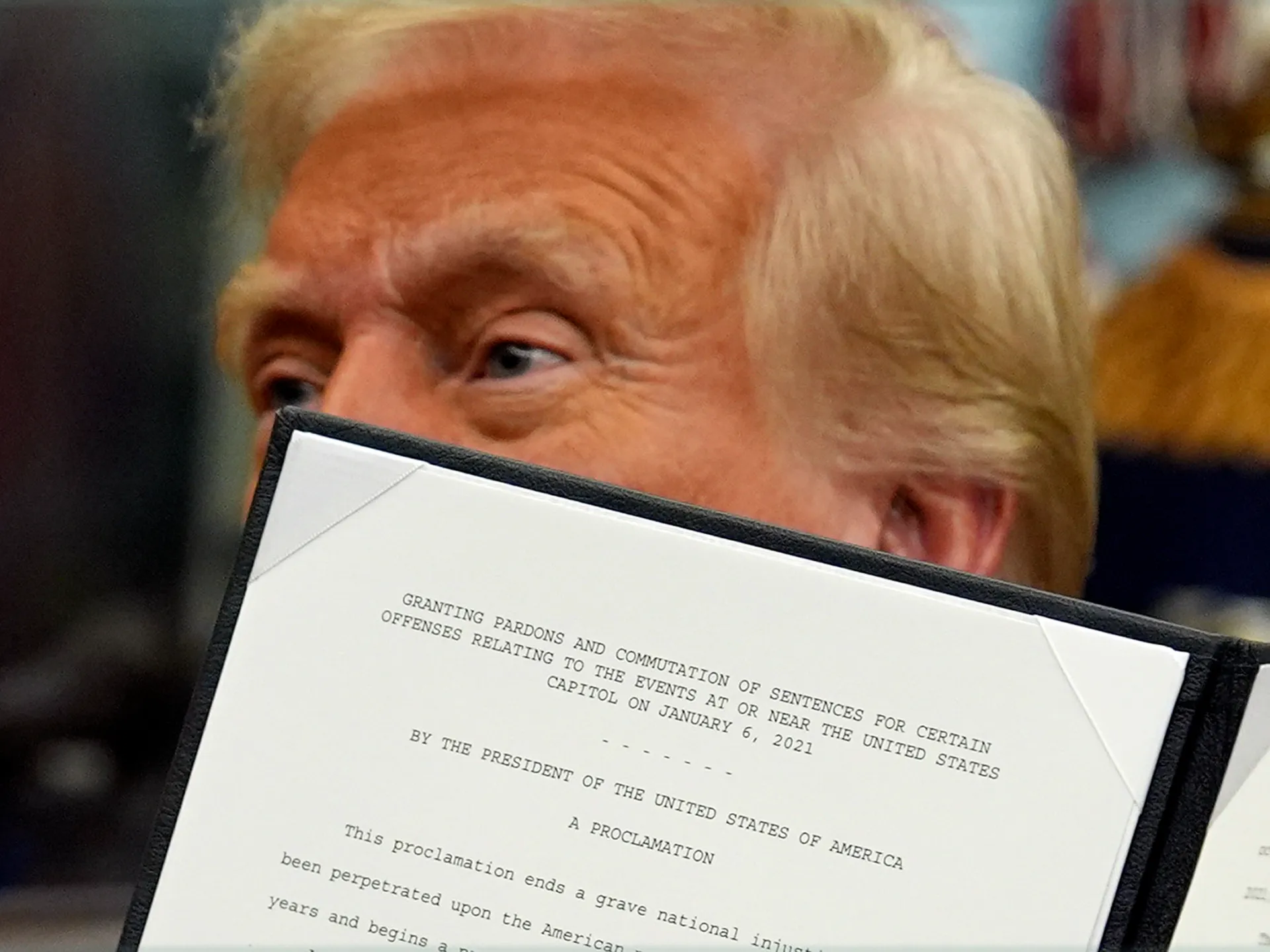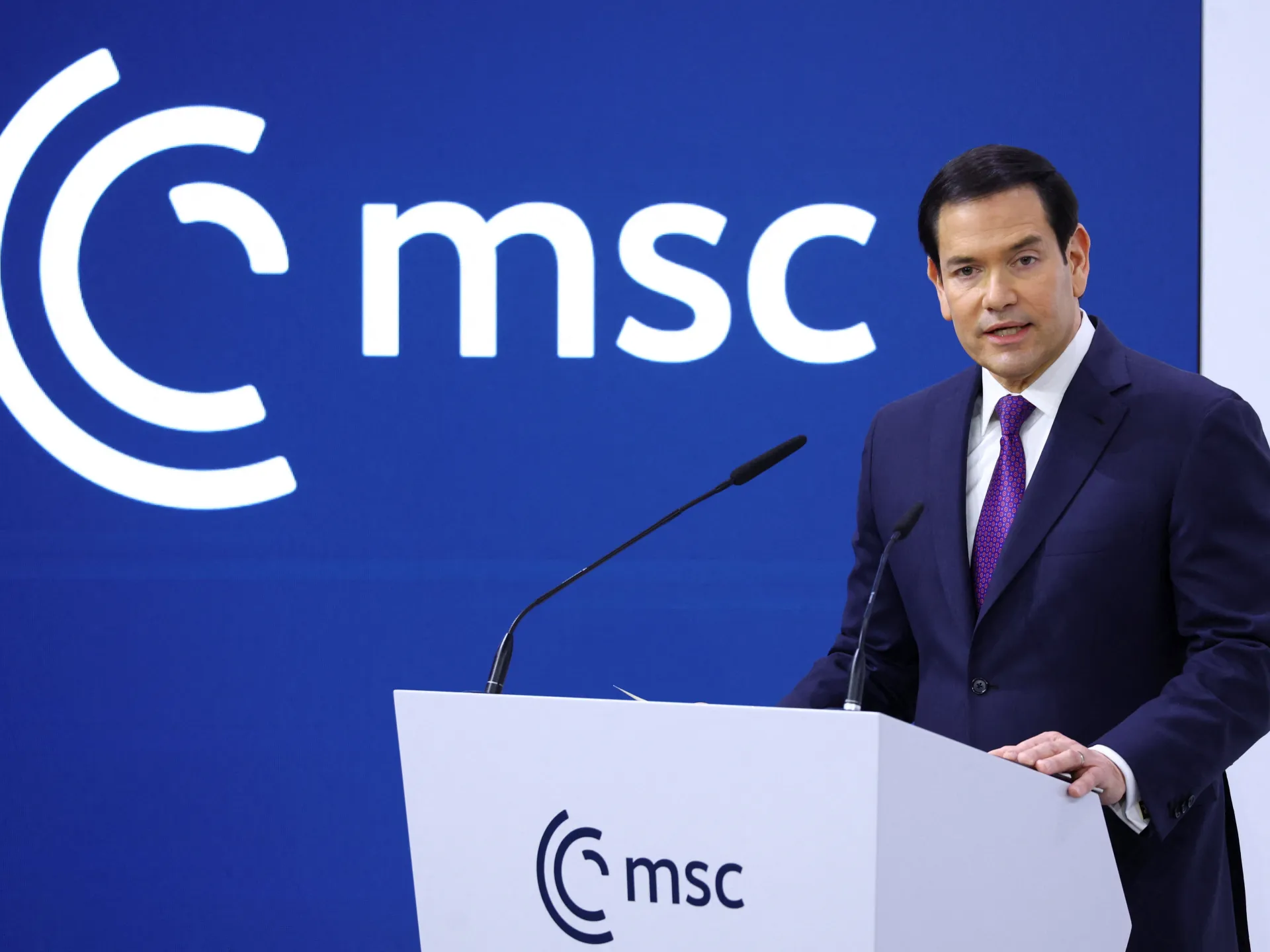Washington, DC – President Donald Trump has long been fixated on how voting in the United States is administered, claiming without evidence that his 2020 presidential election loss was the result of malfeasance.
Fast forward more than five years, and Trump is set to be in office for one of the most consequential midterm races in recent times.
Recommended Stories
list of 3 itemsend of list
It is unclear how the US president might involve himself in the midterms, which will determine whether his Republican Party maintains control over both the House of Representatives and the Senate.
The results will decide whether Trump can continue to enact his agenda with relative ease or if he will face congressional pushback at every turn.
The Republican leader’s approach so far appears to be twofold, according to Michael Traugott, a political scientist and professor emeritus at the University of Michigan.
On one hand, Trump has embarked on a messaging campaign to cast doubt on any results that seem unfavourable.
“Part of what the Trump administration is doing is trying to create the impression of fraud and mismanagement in local elections so that they can argue eventually that some outcomes are not legitimate or real or should be discounted,” Traugott told Al Jazeera.
On the other hand, Trump also appears to be conducting a stress test of pre-existing election law, to see how much the federal government can intervene.
“There are actions that he could take or try to take, which would likely be stopped in the courts,” Traugott said.
“The behaviour in the Trump administration is to appeal, appeal, appeal, until it gets to the Supreme Court,” he added. “I imagine that would be their strategy.”
Calls to ‘nationalise’ election administration
Trump has been explicit about his desire to assert more federal control over the election, saying in early February that “Republicans ought to nationalise the voting”.
He pointed to what he described as “horrible corruption on elections” in some parts of the US.
The US Constitution assigns states the power to determine the “times, places and manner” of elections for federal office.
Congress, meanwhile, has the ability to “make or alter” rules related to voting through legislation or, in extreme cases, constitutional amendments.
“It’s important to remember that, in the United States, we don’t really have national elections. We have a series of state and local elections that are held more or less on the same day,” Traugott explained.
The president, meanwhile, has no constitutional role in how elections are administered, beyond signing any legislation Congress passes.
Still, it is possible for a president to leverage executive branch agencies that interact with state election administration. Trump too has explicitly blurred the lines between federal and state power.
In the Oval Office on February 3, he told reporters, “A state is an agent for the federal government in elections. I don’t know why the federal government doesn’t do them anyway.”
His statements were swiftly condemned by voting rights groups.
The League of Women Voters, a voting rights group founded in 1920, called Trump’s remarks a “calculated effort to dismantle the integrity of the electoral system as we know it”.
“Time and again, the President’s claims of widespread fraud have been disproven by nonpartisan election officials, the courts, and the Department of Justice,” it added.
Despite Trump’s claims, voter fraud is exceedingly rare in the US, and any isolated instances typically have little effect on election outcomes.
Even the Heritage Foundation, the conservative think tank behind the Trump-aligned Project 2025, has documented an inconsequential rate of voter fraud in its catalogue of cases running back to 1982.
An analysis from the centre-left Brookings Institution found that fraudulent votes failed to amount to one ten-thousandth of a percentage point of the ballots cast in states where elections tend to be the closest.
For example, Arizona is a perennial battleground in presidential elections, but it has seen just 36 reported cases of voter fraud since 1982, out of more than 42 million ballots cast. That put the percentage of fraud at 0.0000845, according to the analysis.
Department of Justice pushes boundaries
Nevertheless, the Trump administration has heaped pressure on the Department of Justice to increase its probes into alleged voter fraud.
The attorney general has demanded that 47 states and Washington, DC, a federal district, hand over their complete voter registration lists, according to a tally from the Brennan Center for Justice, a nonpartisan policy group.
Eleven states have complied or agreed to comply. The Trump administration has launched lawsuits against the 20 others that refused.
The Department of Justice has also stepped up its cooperation with the Department of Homeland Security to identify non-citizen voters.
Some critics have even accused the Justice Department of deploying coercive tactics to fulfil its demands for state voter information.
On January 24, for instance, US Attorney General Pam Bondi wrote a letter to Minnesota Governor Tim Walz suggesting three “common sense solutions” to “restore the rule of law” in the state.
One of those proposals was to allow the Justice Department to “access voter rolls”.
Bondi’s remarks came after a federal immigration crackdown in Minnesota had turned deadly, resulting in two on-camera shootings of US citizens.
While her letter did not directly offer a quid pro quo – access to the rolls in exchange for ending the crackdown – critics said the message it sent was clear. Arizona Secretary of State Adrian Fontes, for instance, called the letter tantamount to “blackmail”.
But four days later, on January 28, the Justice Department went even further, seizing voting records and ballots in a raid on an election facility in Fulton County, Georgia.
The state has been a sore point for Trump: Georgia voted for a Democratic presidential candidate for the first time in more than two decades during the 2020 race.
At the time, Trump infamously pressured Georgia’s secretary of state to “find more votes” following his loss. He has spread rumours about fraud in Georgia’s election system ever since.
Local officials condemned the January raid as a “flagrant constitutional violation”, saying in a lawsuit that an affidavit submitted by the FBI to obtain a search warrant relied on hypotheticals.
In other words, it failed to establish probable cause that any crime had occurred, Fulton County officials argued.
That affidavit also revealed the investigation was the direct result of a referral from Kurt Olsen, who was appointed to a White House role as Trump’s head of election security in October.
Before entering the White House, Olsen led unsuccessful legal challenges to the 2020 election results, in what Trump dubbed the “Stop the Steal” campaign.
Fulton County officials noted “multiple courts have sanctioned Olsen for his unsubstantiated, speculative claims about elections”.
What is Tulsi Gabbard’s role?
The apparent role of Tulsi Gabbard, the director of national intelligence, in the election investigations has also raised questions.
Gabbard was present at the Fulton County raid, with Trump later telling reporters that she was “working very hard on trying to keep the election safe”.
Who authorised her presence, however, was the subject of contradictory statements from the Trump administration.
Gabbard said she had been sent on behalf of Trump, even though the president attempted to distance himself from the raid. The Justice Department later said Bondi had requested Gabbard’s presence. Gabbard finally said both Trump and Bondi had asked her to attend.
Whatever the case, Traugott, the political scientist, said that her presence at the scene was highly unusual.
“The director of national intelligence has been associated with observation and information gathering from foreign countries, not from domestic entities,” Traugott explained. “So historically, this is without precedent”.
In a statement, Senator Mark Warner of Virginia said he was concerned that Gabbard had exceeded the powers of her office. He said the Senate Select Committee on Intelligence, where he is vice chairman, had not been briefed on any “foreign intelligence nexus” related to the Fulton County raid.
Either Gabbard was flouting her responsibility to keep the committee informed, Warner said, or she is “injecting the nonpartisan intelligence community she is supposed to be leading into a domestic political stunt designed to legitimize conspiracy theories that undermine our democracy”.
Gabbard, who is expected to testify before the Senate committee in March, responded in early February that she had been acting under her “broad statutory authority to coordinate, integrate, and analyse intelligence related to election security”.
She maintained her office would “not irresponsibly share incomplete intelligence assessments concerning foreign or other malign interference in US elections”.
Voter ID law
But it’s not just executive agencies like the Department of Justice and the Office of the Director of National Intelligence pushing Trump’s agenda for the midterm races.
Experts say Trump has been angling to use the Republican majorities in Congress to pass restrictive voter laws ahead of November’s election.
Trump has supported a bill, dubbed the SAVE Act, which would require citizens to provide more documentation – such as a passport or a birth certificate – when registering to vote, as well as photo identification when casting a ballot.
Rights groups have long argued that such requirements would disenfranchise some voters who lack access to such materials. As of 2023, the US State Department reported that only 48 percent of US citizens had a valid passport.
The bill would also require states to provide voter lists to the Department of Homeland Security to identify and remove non-citizens, raising concerns about voter privacy.
The legislation, which has been passed by the House, is likely to face an uphill battle in the Senate. It is already illegal for non-citizens to vote.
Even without the legislation, though, Trump has threatened to sign an executive order requiring local election organisers to require voter identification before distributing ballots.
Trump already signed a similar order last March seeking to impose new rules on elections, including voter ID requirements, reviews of electronic voting machines and restrictions on how long votes can be counted.
Nearly all of the provisions have since been blocked by federal judges. The most recent ruling by US District Judge John Chun related to restrictions like tying federal election funding to “proof of citizenship” requirements.
“In granting this relief,” Chun wrote in his decision, “the Court seeks to restore the proper balance of power among the Executive Branch, the states, and Congress envisioned by the Framers.”
